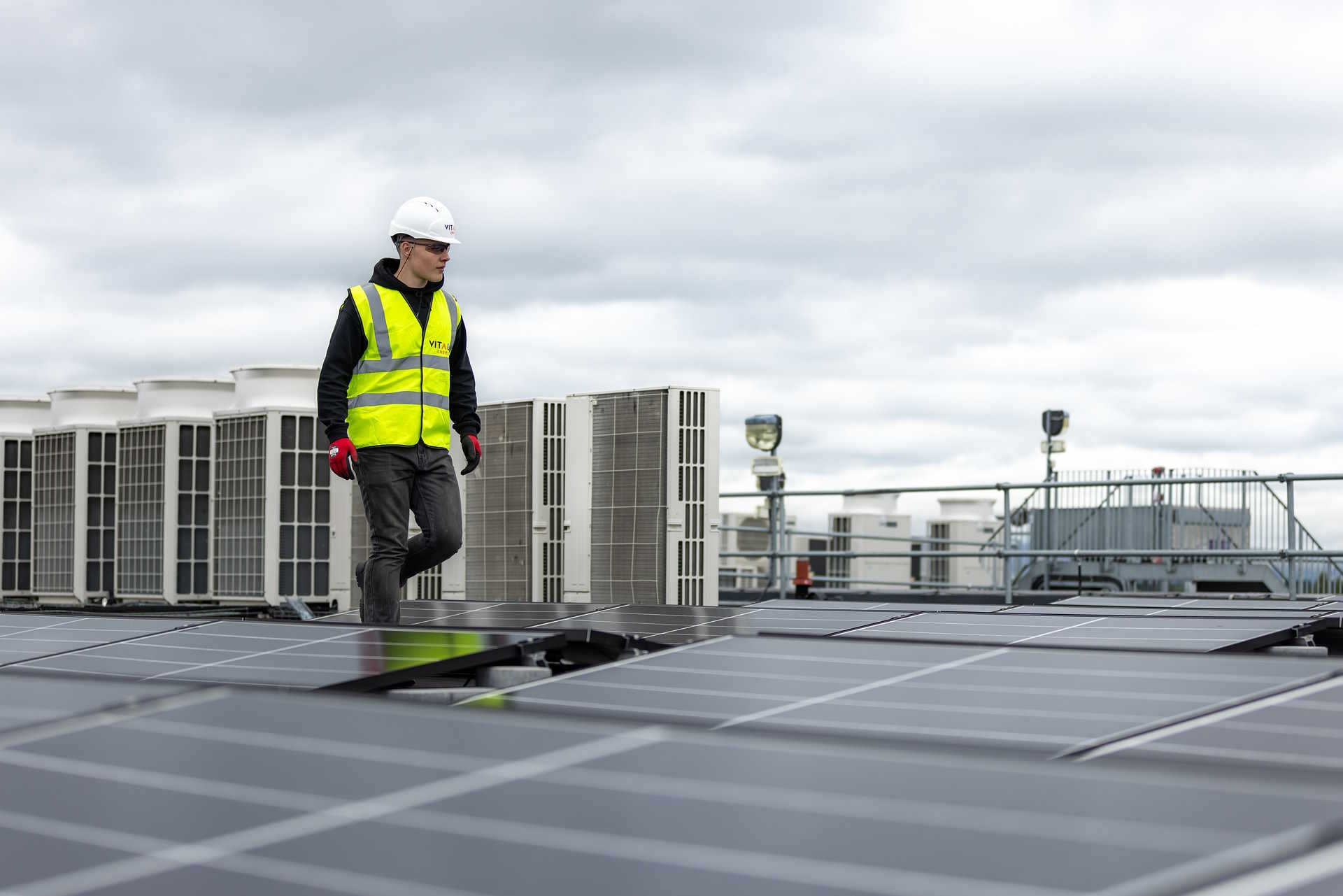Solar Panel Jobs: A Bright Future in Australia's Renewable Energy Sector
The solar energy industry in Australia is experiencing rapid growth, creating numerous job opportunities for those interested in renewable energy careers. From solar panel installation to technical roles and project management, the sector offers diverse paths for professionals seeking to contribute to a sustainable future. This article explores the landscape of solar panel jobs in Australia, providing insights into career options, training requirements, and the industry's outlook.

What types of solar panel jobs are available in Australia?
The Australian solar industry offers a wide range of job opportunities catering to various skill sets and interests. Some of the most common roles include:
-
Solar Panel Installers: These professionals are responsible for the physical installation of solar panels on residential and commercial buildings.
-
Solar Technicians: They focus on the maintenance, repair, and troubleshooting of solar energy systems.
-
Solar Project Managers: These individuals oversee the planning, execution, and completion of solar energy projects.
-
Solar Sales Representatives: They work to promote and sell solar energy systems to potential customers.
-
Solar Design Engineers: These experts design efficient solar energy systems tailored to specific client needs.
Each of these roles plays a crucial part in the solar energy ecosystem, contributing to the growth and success of the industry in Australia.
What qualifications are needed for solar panel installation jobs?
To pursue a career in solar panel installation, certain qualifications and certifications are typically required:
-
Certificate III in Electrotechnology Electrician: This is the foundational qualification for becoming a licensed electrician in Australia.
-
Clean Energy Council (CEC) Accreditation: Specifically for grid-connected solar PV systems, this accreditation is essential for solar installers.
-
Working at Heights Certification: Given the nature of the job, this safety certification is often mandatory.
-
First Aid and CPR Certification: Many employers require these basic safety qualifications.
Additionally, some employers may prefer candidates with experience in the construction or electrical industries. Ongoing professional development is also crucial in this rapidly evolving field.
How can one pursue a career in solar energy in Australia?
Embarking on a career in solar energy typically involves the following steps:
-
Education: Start with relevant courses or degrees in electrical engineering, renewable energy, or related fields.
-
Apprenticeship: Many begin their careers through apprenticeships, gaining hands-on experience under the guidance of experienced professionals.
-
Certifications: Obtain necessary certifications such as CEC accreditation and safety qualifications.
-
Networking: Join industry associations and attend renewable energy events to build professional connections.
-
Continuous Learning: Stay updated on the latest solar technologies and industry trends through ongoing education and training.
By following these steps, individuals can position themselves for success in the growing solar energy sector.
What is the job outlook for solar technicians in Australia?
The job outlook for solar technicians in Australia is exceptionally positive. According to the Australian Government’s Job Outlook portal, employment in the broader category of Electricians, which includes solar technicians, is projected to grow strongly over the next five years. This growth is driven by several factors:
-
Increasing adoption of solar energy by households and businesses
-
Government incentives and rebates for solar installations
-
Growing awareness of environmental issues and the push for sustainable energy solutions
-
Technological advancements making solar energy more efficient and cost-effective
As Australia continues to invest in renewable energy, the demand for skilled solar technicians is expected to rise, offering stable and rewarding career opportunities in the long term.
What are the unique aspects of solar energy careers in Australia?
Solar energy careers in Australia offer several unique advantages and challenges:
-
Outdoor Work: Many roles involve working outdoors, which can be appealing for those who enjoy an active lifestyle.
-
Technological Innovation: The industry is at the forefront of renewable energy technology, offering opportunities to work with cutting-edge systems.
-
Regional Opportunities: Solar jobs are not limited to major cities, with significant demand in rural and regional areas.
-
Environmental Impact: Professionals in this field directly contribute to reducing carbon emissions and promoting sustainability.
-
Seasonal Variations: Work can be affected by weather conditions and seasonal changes, requiring flexibility and adaptability.
These factors make solar energy careers both rewarding and dynamic, attracting individuals passionate about technology and environmental sustainability.
How does the salary range compare for different solar panel jobs?
Salaries in the solar energy sector can vary based on factors such as experience, location, and specific role. Here’s a general overview of salary ranges for different solar panel jobs in Australia:
| Job Title | Experience Level | Estimated Annual Salary Range (AUD) |
|---|---|---|
| Solar Panel Installer | Entry-Level | $50,000 - $70,000 |
| Solar Panel Installer | Experienced | $70,000 - $100,000 |
| Solar Technician | Entry-Level | $55,000 - $75,000 |
| Solar Technician | Experienced | $75,000 - $110,000 |
| Solar Project Manager | Mid-Level | $90,000 - $130,000 |
| Solar Sales Representative | Entry-Level | $50,000 - $70,000 (plus commissions) |
| Solar Design Engineer | Mid-Level | $80,000 - $120,000 |
Prices, rates, or cost estimates mentioned in this article are based on the latest available information but may change over time. Independent research is advised before making financial decisions.
In conclusion, the solar panel job market in Australia offers diverse opportunities for those looking to build a career in renewable energy. With strong growth projections, competitive salaries, and the chance to make a positive environmental impact, solar energy careers present an attractive option for job seekers. As the industry continues to evolve, staying informed about training requirements and industry trends will be key to success in this dynamic field.




